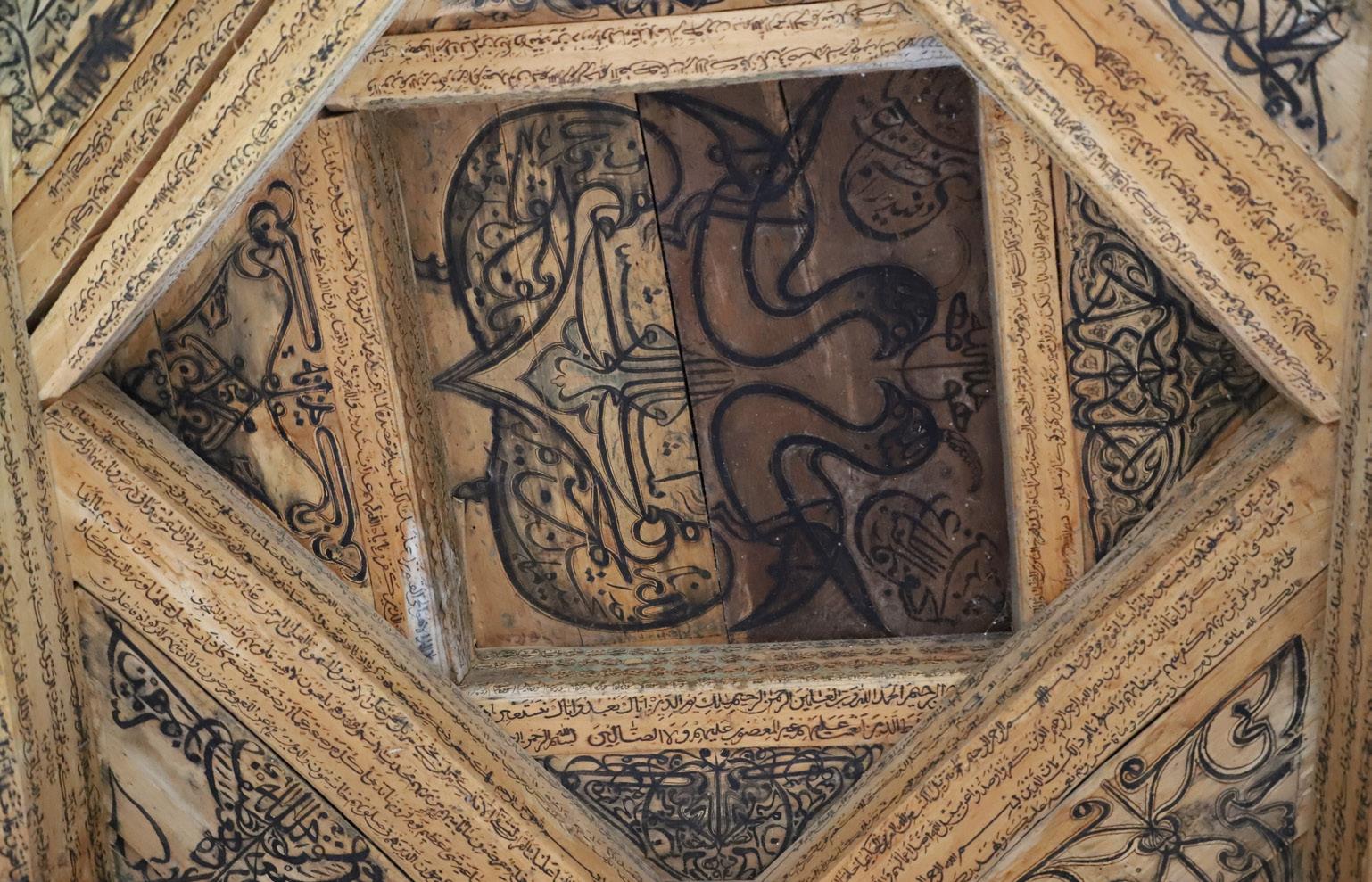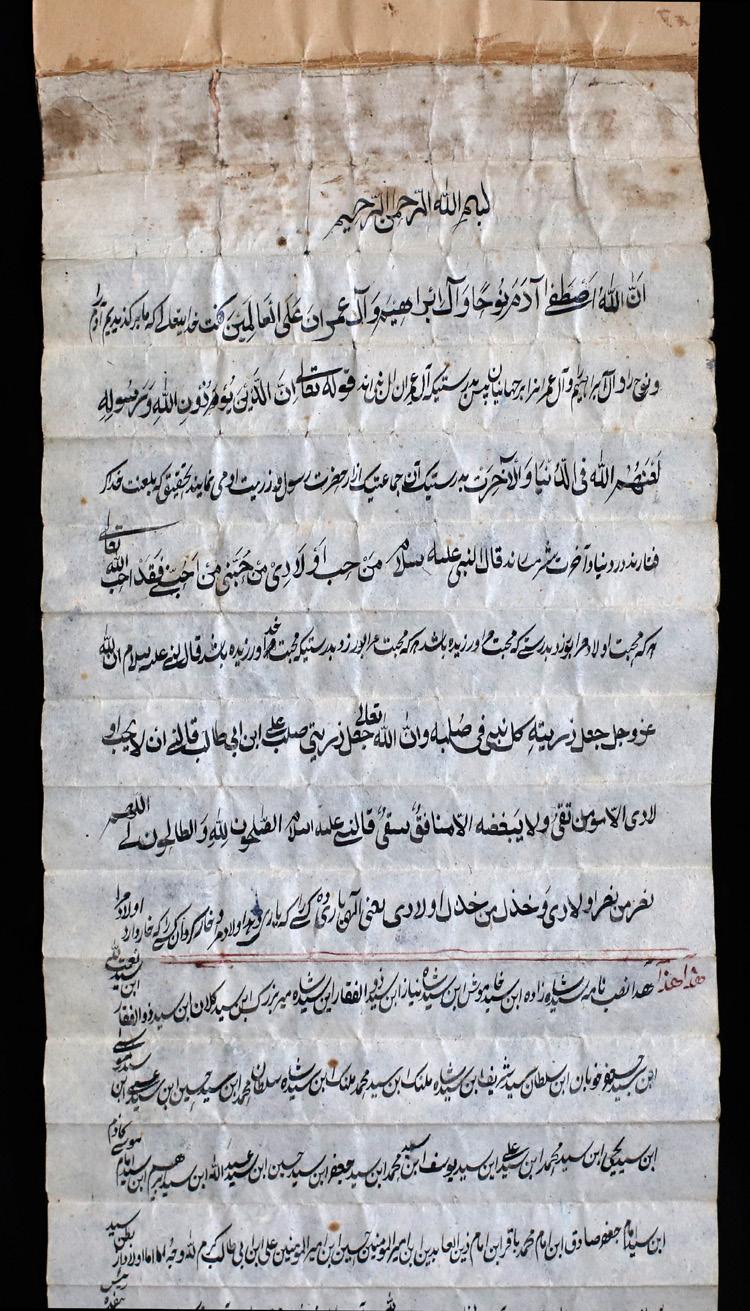
3 minute read
Center Initiatives
from Sharmin and Bijan Mossavar-Rahmani Center for Iran and Persian Gulf Studies: Annual Review 2019-20
Badakhshan Initiative
The Mossavar-Rahmani Center continues to support the Badakhshan Manuscript Initiative, and this past year marks the third year of a collaboration with Visiting Research Collaborator, Dr. Jo-Ann Gross, principal researcher of the Badakhshan Project, “Ismailism in Badakhshan: A Genealogical and Documentary History,” which will preserve roughly 65 original, privately held genealogical histories (nasab-namahs) from the 16th–20th centuries and is supported by a three-year National Endowment for the Humanities Collaborative Research Grant.
Advertisement
Using an archive of digital photographs of genealogies compiled during Dr. Gross’ 2004–2019 field research in the region, it is the first effort to study the history of genealogical documentation in the Ismaili communities of Badakhshan in Tajikistan and Afghanistan. This groundbreaking work highlights a local documentary culture of genealogically based sanctity and sayyid pedigree among familial communities of shahs,
Section of calligraphic ceiling from the shrine of 19th-century Ismā ʿ īlī pīr, Sayyid Farrukhshāh, 1860, Porshnev, Gorno-Badakshan, Tajikistan pīrs and khalīfas.
The results of the project will be the creation of an open access digital repository at Firestone Library and the publication of a co-authored book. This initiative further builds upon the center’s ongoing relationship with Princeton University’s Firestone Library and will make this corpus of Persian-language texts legible as historical sources for scholars and students. It will be the first corpus of Ismaili documents from Badakhshan available online.
Collaboration with Princeton University Library
Princeton University is known for its rich Iranian resources among scholarly circles, and is one of the few remaining libraries that continues its serious acquisitions from Iran via two Iranian vendors, one in Tehran and the other in Qom, the religious capital of Iran. The library hosts one of the largest Persian manuscript collections in the United States and the largest collection of Sharia law outside of Iran. Currently, this includes 81,832 titles in Persian, with 1,400 of these fully accessible online, in addition to



several hundred boxes of books from Iran that have yet to be catalogued. It is also home to a half million pages of pre-revolution materials from the late 1800s to 1979, including magazines, political cartoons, periodicals and pamphlets, that have been digitized, but still need a lot of back-end work to have them accessible to patrons.
Historically, the library acquired materials in Persian, Arabic, Turkish and Hebrew for its Near Eastern Studies collection. It has been collecting at least since the turn of the century, focusing primarily on classical items, manuscripts and similar materials. With the establishment of the Mossavar-Rahmani Center, the scope of interest has increased to include contemporary Iran. The center has worked with the library to support current projects and envisions a long-term partnership in developing its rich resources for scholars of Iran and the Persian Gulf.
Iran Social Survey
The Sharmin and Bijan Mossavar-Rahmani Center continues to support the Iran Social Survey (ISS) project, conceived by former center postdoc Kevan Harris, now Assistant Professor at the Department of Sociology, UCLA. The ISS measures social and economic indicators across a broad array of topics: class and occupational change, usage of state and public services, political behavior and electoral participation, identity and ethnicity and engagement with civic institutions. The ISS is important because Iran is the 19th most populous country in the world, yet we know remarkably little about contemporary Iranian social relations and public behavior.
Objective, methodologically rigorous assessments of social and political life in Iran are needed to shape government policy, inform the public debate and ensure that domestic voices are heard and understood. The ISS is designed to create an accurate mapping of the country’s complex social life that generates crucial knowledge as well as a dataset comparable with other rapidly changing developing countries. It is the only nationally representative, personal-interview survey conducted inside the Islamic Republic. ISS research is used by policymakers, area experts and scholars to access the core needs and concerns driving the structure and functioning of Iranian society.
In its initial phase, the ISS surveyed a nationally representative sample of 5,000 Iranian residents after the 2016 Majles (parliamentary) and Assembly of Experts elections, and led to the production of a brief—“Voter Behavior and Political Mobilization in Iran: Findings from the Iran Social Survey”—as well as a 2017 workshop hosted by the center.
The second wave will be fielded in December 2020 rather than early summer as initially planned, as a result of the coronavirus pandemic. Moreover, polling will include questions specifically related to experiences of Iranians since the onset of the pandemic.
Left
Nasab-nāmah of Sayyid Shāhzādah (upper section of document scroll, dated 1280/1862), Porshnev, GornoBadakhshan, Tajikistan




